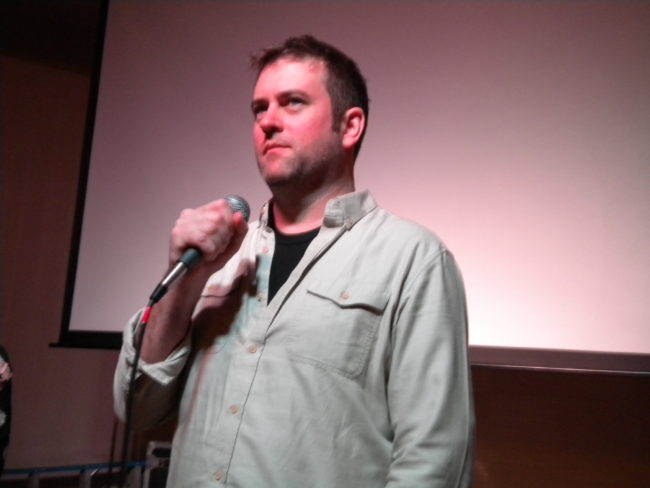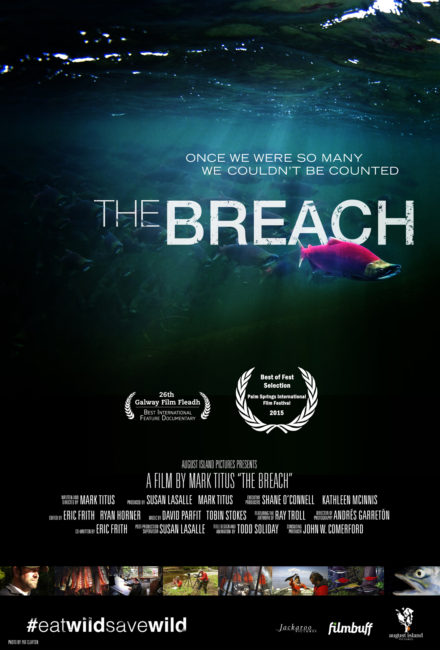
“The Breach” is a documentary chronicling director Mark Titus’ love story with wild salmon, a fish he’s always considered sacred.
The Seattle-native started fishing when he was two, and says that started a lifelong appreciation for salmon. Titus, an independent filmmaker, decided to take this infatuation and put it on the big screen.
“I came up with this idea of telling a love story of salmon and there were people that rolled their eyes,” Titus says.
After four years of fundraising and production work, Titus is screening “The Breach” in a 12-stop national tour that came to Juneau Friday.
The film traces mankind’s exploitation of salmon from Europe to the Pacific Northwest. Dams, mines, over-fishing and hatcheries are presented as threats, leading to the fish’s dwindling population.

“It’s an animal that is so sacred that it deserves to have a chance to live and thrive because it feeds everything,” Titus says.
Titus says the documentary’s title comes from the image of salmon beating their heads against a dam as they attempt to swim upstream—an image of pursuit that reminded him of Shakespeare.
“It really kind of resonated with the idea in Henry V of ‘Once more dear friends, unto the breach’ and let’s just keep moving forward,” Titus says.
Most of the film was shot in Alaska—the last place in the world Titus says is doing anything to protect salmon.
The film focuses on Bristol Bay in Southwest Alaska, where locals rely on fishing for income and subsistence. Many residents are in conflict with The Pebble Limited Partnership—which seeks to build a mine near the headwaters of two of Bristol Bay’s major rivers.
Titus explores the dilemma of whether industry and nature can coexist for the sake of a stable economy — a question he says has no easy answer.
“I think the real question about what’s going on in Bristol Bay is not about whether the world needs more copper — the question is what do we value as a society,” Titus says.
“The Breach” had its world premiere in Ireland last summer, where it won the International Feature Documentary award at the 2014 Galway Film Fleadh Awards.
Dillingham Rep. Bryce Edgmon was one of more than 200 people to view the film at the Juneau screening in the Rockwell Ballroom. He thinks the film is an educational, accurate portrayal of salmon history.
“Well I think it tells the whole story,” Edgmon says. “It really lays out the thread that we have incrementally destroyed salmon habitat.”
Edgmon was raised in the Bristol Bay area, and says most residents oppose the Pebble Mine project because of the threat it poses to their fish resource.
“Salmon is the king 12 months out of the year in Bristol Bay,” Edgmon says.
Alaska voters in November passed a ballot initiative that requires legislative approval of large-scale mining within the Bristol Bay Fisheries Reserve. Anchorage Rep. Andy Josephson has taken that a step further, introducing a bill that would require the departments of Fish and Game, Environmental Conservation, and Natural Resources to sign off on such projects.
Titus says he attempted to interview supporters of the Pebble Mine project for “The Breach,” but was unsuccessful.
The film ends on an ambiguous note, with the fate of Bristol Bay’s fish undetermined. Titus says “The Breach” is less about the politics of salmon and more about an emotional connection to the fish.
“It strikes a chord in people’s hearts, and that’s why I made this film,” Titus says.
After its Alaska tour, the film will go on to screen in New York City and Washington D.C.
